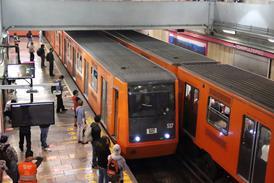Close menu
- Home
-
News
- Back to parent navigation item
- News
- Traction & Rolling Stock
- Passenger
- High Speed
- Freight
- Infrastructure
- Policy
- Technology
- Ticketing
- Business
- Research, Training & Skills
- Accessibility & inclusion
- People
- Urban rail news
- Suburban and commuter rail
- Metro
- Light rail and tram
- Monorail and peoplemover
- Regions
- InnoTrans
- In depth
- Events
- Data
- Maps
- Tenders & Jobs
- Sponsored content
- Insights
Baden-Württemberg seeks ‘interim arrangement’ with Go-Ahead
By Railway Gazette International20 May 2020

GERMANY: The Transport Ministry in the Land of Baden-Württemberg has agreed with UK-based private operator Go-Ahead that assistance with running services on the 180 km Frankenbahn linking Stuttgart with Würzburg via Heilbronn should be sought temporarily from another company. Two diagrams on this route were allocated to DB Regio in ...
Already have an account? LOG IN
To continue…
You’ve reached your limit of content for the month
Get enhanced access to Railway Gazette news and weekly newsletters.
Site powered by Webvision Cloud














